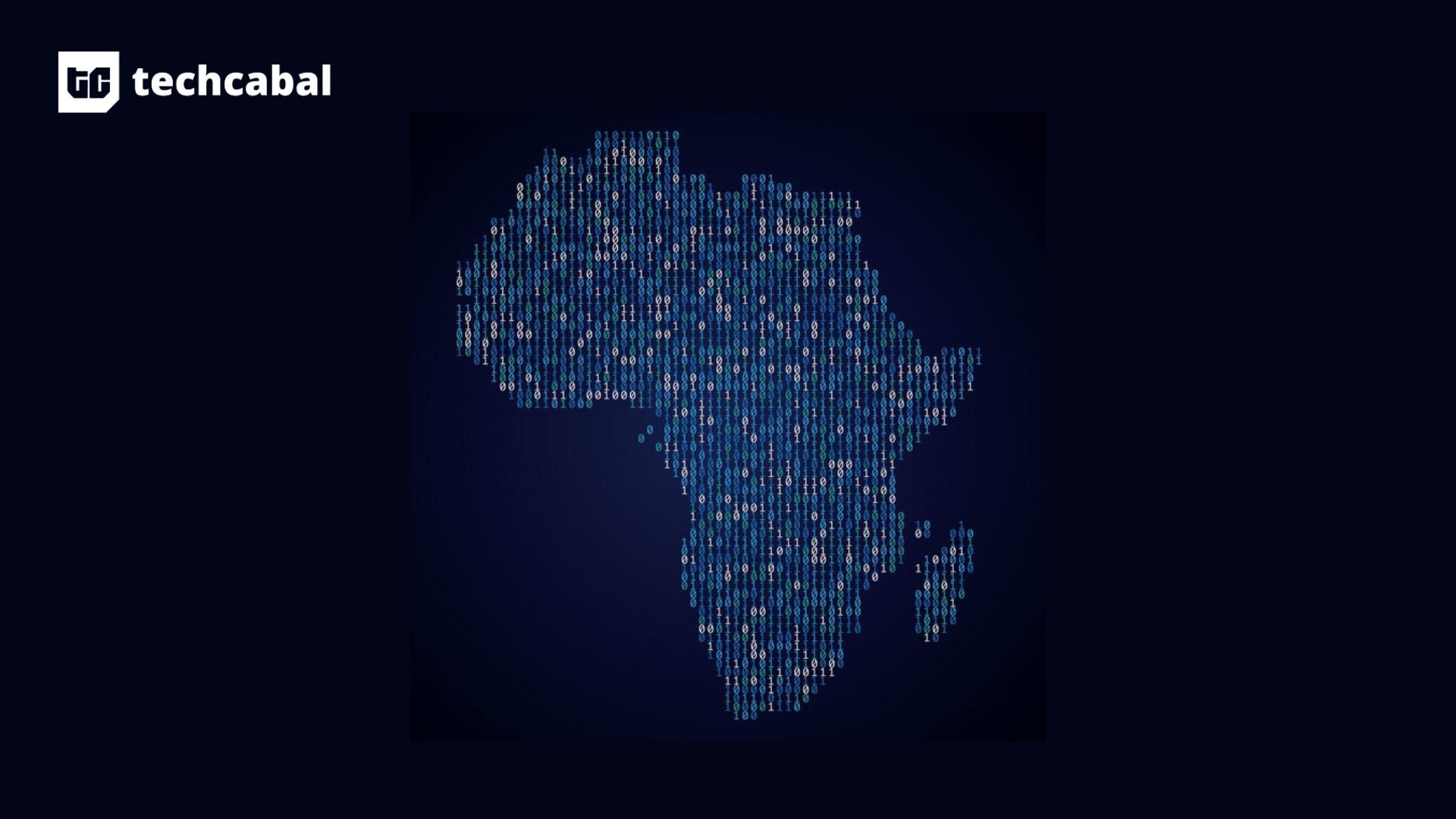

Good morning ☀️
Last week, we launched a new column, Myth Busters, to investigate the infamous tech lores that often burn across social media.
In the first edition, Ganiu tells us if Nigeria’s apex bank is really trying to loot all the monies in the 19 million dormant bank accounts across the country with a rehashed guideline. Find the answer here.
Nigerians face barred SIMs as registration deadline approaches
In December 2021, the Nigerian government set a tight goal: it would enrol 100 million Nigerians on its national identification programme by 2025. At the time, only 70 million Nigerians—less than 50% of the country’s population—were enrolled in the programme which supposedly kicked off in 2015.
Two years later, in December 2023, the number of enrollees hit 104.16 million, a small growth considering the identity management agency had plans to register at least 2.5 million enrollees per month. One incentive, announced in February 2020, that has pushed registrations so far is linking NINs to SIM cards.
The government’s rationale is that by connecting SIM cards to the national identity database, it becomes easier to identify individuals using these phone numbers. Moreover, if the Nigerians using the 224 million or so SIM cards active in the country needed NINs to operate these cards, registrations would be driven up.
Since postponing the initial December 2020 deadline for registration, the finish line for the NIN-SIM linkage has been pushed back at least ten times to give the country’s 200 million-plus citizens enough time. This, inadvertently, led to a sense of complacency among many Nigerians.
With the latest deadline set for July 31, 2024, several MTN users in Nigeria woke up to barred lines on Sunday, three days early. Some, like this user, claim to have completed the NIN-SIM linkages. At the expiration of the last deadline, over 40 million SIMs were barred across the major telcos in the country.
While MTN has yet to make a statement, it informed users of steps to take to reactivate their barred lines via its X page.
Read Moniepoint’s 2024 Informal Economy Report
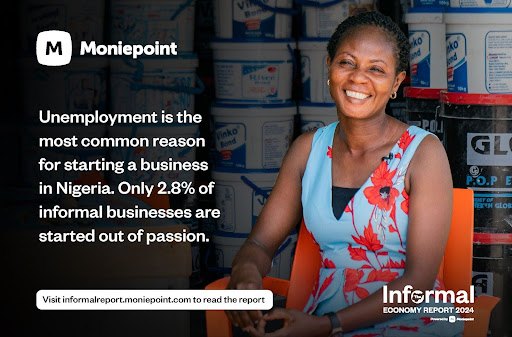
Did you know that only 2.8% of informal businesses are started out of passion? Click here to find out the motivation of businesses in Nigeria’s informal economy.
How the Central Bank’s wonky 2022 policy created a big win for POS agents
“The law of unintended consequences, often cited but rarely defined, is that actions of people—and especially of government—always have effects that are unanticipated or unintended.”
When Nigeria’s former Central Bank chief Godwin Emefiele announced a hasty plan in October 2022 to phase out the country’s ₦200, ₦500, and ₦1,000 notes in six short months, one justification was the “significant hoarding of banknotes by members of the public.”
“Statistics show that over 85%of currency in circulation are outside the vaults of commercial banks,” Emefiele said at the time. No one was sure why that was a bad thing, but it sounds pretty serious when you attach 85% to anything.
Yet, two years and one cash crunch later, the unintended consequence of Emefiele’s abrupt currency change—a court ruling extended the timeline to one year—is that more Nigerian businesses bypass commercial banks for banking agents, a.k.a POS agents for money deposits.
It’s creating a second cash at Nigeria’s commercial banks. The banks are responding by setting daily withdrawal caps for customers.
Here’s Muktar Oladunmade from his Saturday article:
“We cannot give out more than ₦100,000 for each customer. Sometimes we open with only ₦600,000 or ₦1,000,000, and we have to make sure people get cash when they come to the banks, so we ration it,” a banker told TechCabal. “The central bank delivered cash to their Ojodu branch only twice last week,” that person added.
Muktar’s argument goes something like this: the POS agents got creative during the 2023 cash crunch, but some of the ways they got access to cash remain relevant now. What business wants to go to the bank and face possibly long queues if they can make their deposits at the POS agent two doors down for free?
Read Muktar’s article here.
Collect payments anytime anywhere with Fincra
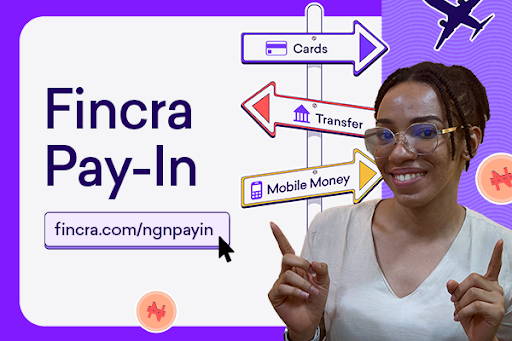
Are you dealing with the complexities of collecting payments from your customers? Fincra’s payment gateway makes it easy to accept payments via cards, bank transfers, virtual accounts and mobile money. What’s more? You get to save money on fees when you use Fincra. Get started now.
Ethiopia floats its currency
Last week, Ethiopia signed a local currency swap worth $817 million with the UAE as it seeks to pay off its debts. In 2023, the country defaulted on the interest payment—$33 million—on a $1 billion Eurobond that matures later this year.
The country is also currently negotiating a $10.5 billion aid package with the International Monetary Fund (IMF) to boost its ailing economy.
Ethiopia will now float its currency, the Birr, as it seeks to remedy its economy. The move is part of a broader macro-economic reform whose objective is to “correct foreign exchange distortions and solve the structural balance of payments deficit problems.”
Sidebar: Countries float their currencies to let their currencies find their true value which is determined by supply and demand in the foreign exchange market. A floating currency can help absorb shocks to the economy. For example, if a country like Ethiopia experiences economic downturns or changes in demand for its exports, the currency can depreciate, making exports cheaper and imports more expensive, thus helping to restore balance.
Ethiopia’s previous exchange system caused a dollar shortage which was needed for imports and repatriation of profits for foreign investors.
Ethiopia follows in the footsteps of Nigeria which floated the naira when President Tinubu assumed office. The naira has lost 70% of its value since then and spent brief stints as the world’s worst-performing currency.
Paystack Virtual Terminal is now live in more countries
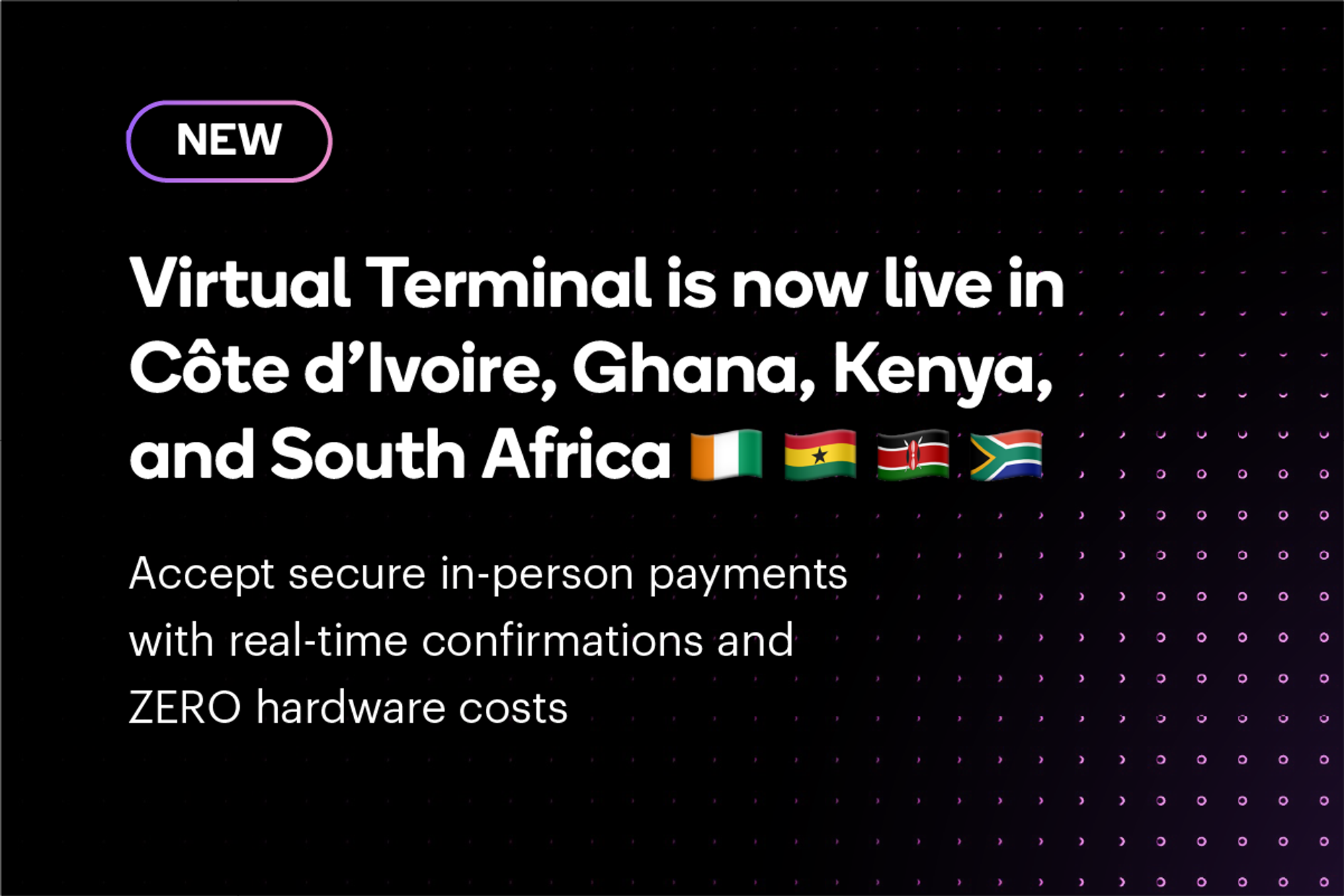
Paystack Virtual Terminalhelps businesses accept secure, in-person payments with real-time WhatsApp confirmations and ZERO hardware costs. Enjoy multiple in-person payment channels, easy end-of-day reconciliation, and more. Learn more on the Paystack blog →
AI’s promise in Africa
Four months ago, both Kenya and Nigeria announced the development of national AI strategies. For Kenya, the initiative is aimed at leveraging AI’s potential in driving Kenya’s digital transformation and achieving the SDGs. In Nigeria, tech minister Bosun Tijani noted that the National AI strategy would “improve lives and foster economic growth.”
So far, only seven African countries—Benin, Egypt, Ghana, Mauritius, Rwanda, Senegal, and Tunisia—have developed national AI programmes, and several more like Nigeria and Kenya have plans in place. Nothing much has been heard about these plans since then, but Africa’s tech ecosystem is holding hope on the promise of AI for the continent.
Lady Mariéme, founder of iamtheCODE, for example, believes AI can be a game-changer for Africa, particularly in healthcare and education. At iamtheCODE, Lady Mariéme leads the first Africa-Led Global movement whose mission is to teach 1 Million girls and women how to Code by 2030. She envisions AI-powered chatbots offering on-demand medical advice in rural areas, where access to healthcare is limited. AI can also enhance diagnostic accuracy, leading to earlier disease detection and improved treatment plans.
iamtheCODE’s AI Healthbot, for example, is designed to provide young women and girls in underserved communities, including refugee camps, with critical health information. “This AI platform offers timely medical advice, early diagnosis, and preventive care guidance, easing the burden on traditional healthcare systems,” Lady Mariéme noted. “Plus, it’s free in refugee camps and marginalized communities ensuring that everyone, regardless of their circumstances, has access to essential health information.”
Beyond healthcare, Lady Mariéme sees AI as a tool for educational transformation. Personalized learning, powered by AI, can bridge the educational gap in underserved communities. AI-driven tutoring systems and educational apps can provide much-needed support to students.
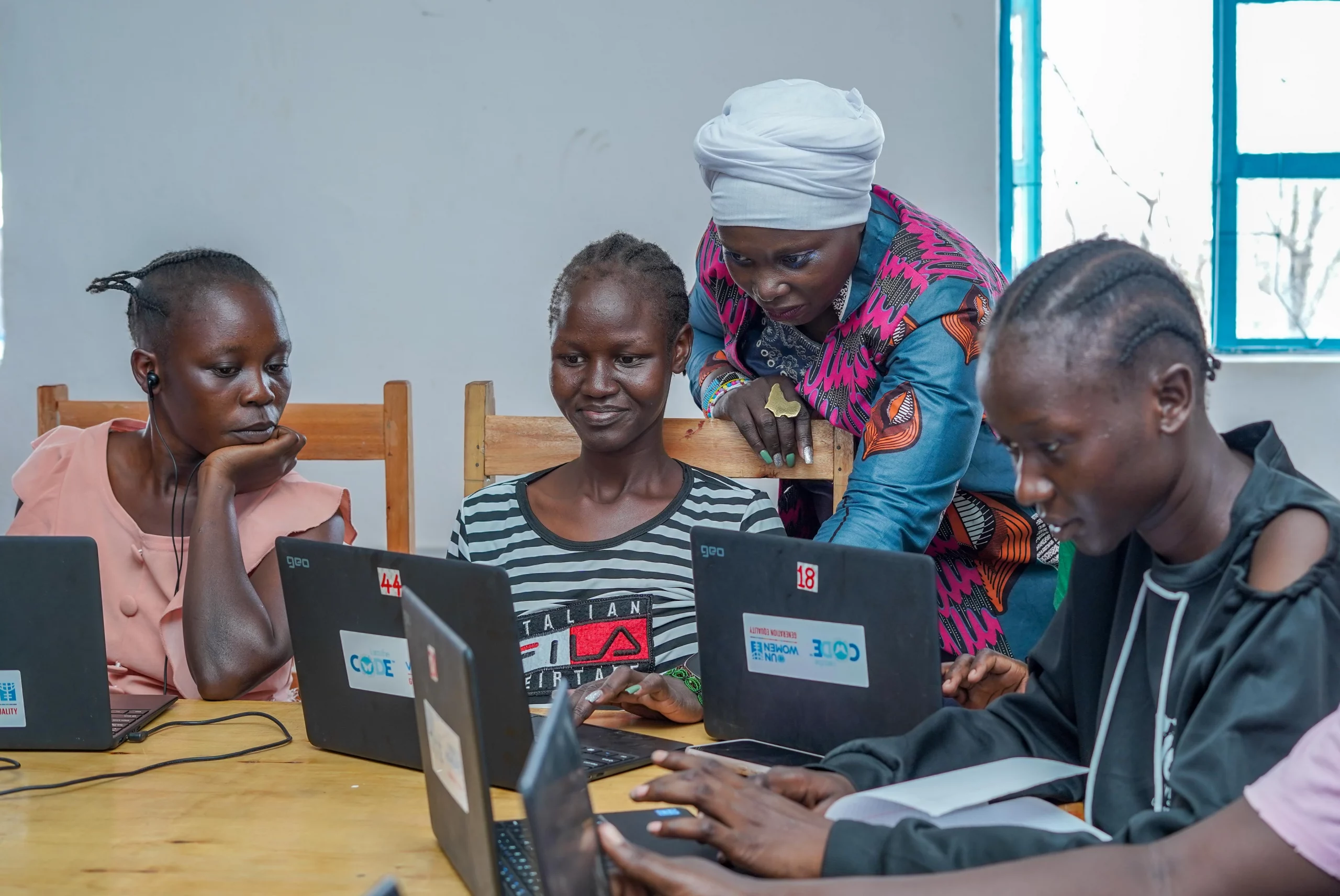
To overcome challenges like infrastructure and affordability, Lady Mariéme emphasizes the importance of digital literacy, expanded connectivity, and affordable devices. She also calls for increased investment in local AI innovations and public-private partnerships.
While Africa has been slower in adopting AI compared to other regions, there are promising examples. Rwanda’s AI policy and the growing number of AI startups in East and West Africa demonstrate the continent’s potential.
However, for AI to truly benefit Africa, several factors need to be in place. First, governments must prioritise AI in their development agendas and allocate sufficient resources for research, development, and implementation. Second, there needs to be a focus on building a skilled AI workforce through education and training programs. Third, robust data infrastructure is essential for AI applications to thrive.
Furthermore, addressing ethical concerns around AI is crucial. Issues such as data privacy, bias, and job displacement need to be carefully considered and managed.
The potential of AI for Africa is immense. It can address pressing challenges in healthcare, education, agriculture, and other sectors. By investing in AI, African countries can leapfrog traditional development paths and create a more prosperous and equitable future for their citizens. As Lady Marieme puts it, “AI has the potential to be a game-changer for Africa, but its successful implementation requires a concerted effort from governments, the private sector, and civil society.”
The journey has just begun, but the potential rewards are enormous.
- You can still get an early bird ticket to the second edition of TechCabal’sMoonshot Conference! From October 9–11, 2024, at the Eko Convention Centre, Lagos, Nigeria, you can join Africa’s biggest thinkers and players like Iyin Aboyeji, Wiza Jalakasi, June Angelides, Kola Aina on a global launchpad for change. If you want to join these stakeholders in Africa’s tech ecosystem for three days of insightful conversations, then get an early-bird ticket to Moonshot 2024 at 20% off.
- Join the 24 Fintech Africa Roadshow Webinar! We’re excited to invite you to our upcoming webinar on Monday, July 29th at 3:00 PM WAT. Discover opportunities for African technology companies at the 24 Fintech Summit, happening from September 3 – 5, 2024, in Saudi Arabia. Speakers include leaders from the fintech industry, providing insights on global fintech trends and opportunities. Don’t miss out on this chance to connect and learn. Register Now.
- Join Career Brunch 2024 on August 17, 2024, in CcHUB with successful professionals from diverse fields and beyond for an exclusive (physical) career hangout for all professionals. Whether you’re a 9-5er, entrepreneur, founder, or young and upcoming professional looking to climb the career ladder, scale your business or transition, Career Brunch has something for you. This is your golden ticket to connect with industry leaders and professionals from MTN, CcHUB, McKinsey, Spotify etc., gain invaluable insights, and supercharge your career trajectory. Get your ticket at www.tix.africa/thebrunch.
You should definitely read these 👇🏾
Written by: Emmanuel Nwosu, Mobolaji Adebayo & Faith Omoniyi
Edited by: Muyiwa Olowogboyega & Timi Odueso
Want more of TechCabal? Sign up for our insightful newsletters on the business and economy of tech in Africa.
- The Next Wave: futuristic analysis of the business of tech in Africa.
- Entering Tech: tech career insights and opportunities in your inbox every Wednesday at 3 PM WAT.
- TC Scoops: breaking news from TechCabal
P:S If you’re often missing TC Daily in your inbox, check your Promotions folder and move any edition of TC Daily from “Promotions” to your “Main” or “Primary” folder and TC Daily will always come to you.









